Paradores Monocle
Steeped in culture
Spain’s most prominent castles, convents and monasteries are today unified under the singular banner of the Paradores, a group of 98 hotels spanning the Iberian Peninsula and the Canaries (one of them in Portugal). These jewels, from fairy-tale palaces to secluded ecclesiastical retreats, were refurbished into paragons of hospitality as part of Spain’s transformation into a modern, welcoming nation. Every stay at a Parador is an immersive journey into the country’s culture, history and character. This diverse community of hotels offers heritage architecture, museum-worthy art collections and gastronomy that celebrates the richness of each region, and has positioned itself as a leader in sustainable practices. The Paradores tell a riveting story of Spain’s past feats and future possibilities.
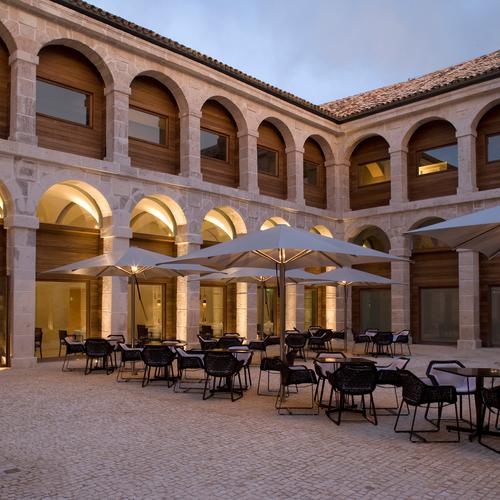
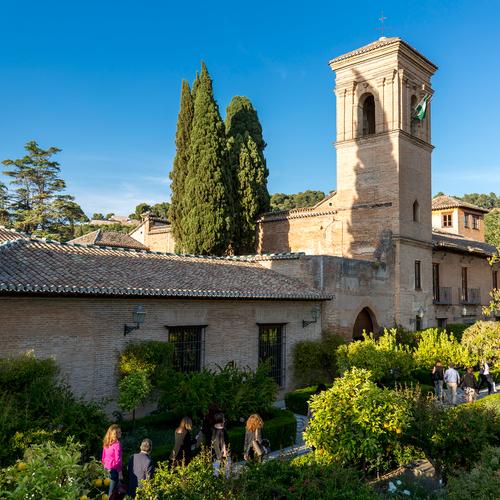
01
Parador de Granada
Mighty monument
While many flock to Granada to marvel at the Alhambra “peace palace”, few realise that occupying a room in the historic city’s Parador hotel means sleeping within the exquisite grounds of the emblematic monument. Every night here places guests at a crossroads of history, culture and sensorial spectacle. Built more than 700 years ago, the Alhambra has a fortress-like exterior that contrasts with the tranquillity of its interior gardens. The hotel is a restored convent that also holds a significant place in Spanish history: it was the first symbolic building ordered by the Catholic monarchs after the reconquest of Andalusia. Sat on the site of an old Nasrid palace, the convent retains features inherent to Islamic architecture: the transformation converted the interior courtyard into a cloister and preserved the magnificent Arab hall and a stunning domed lookout point. The interiors are a patchwork of evocative artworks and ornately carved furniture. The hotel’s gastronomic offering is an intersection of flavours, from habas a la granadina (fava beans with artichokes) to piononos de Santa Fe (small, spongy pastries sourced from an outlying town).
02
Parador de Alcalá de Henares
Literary tradition
Alcalá de Henares has always influenced the Spanish narrative far beyond its borders. The birthplace of early modern Spanish writer Miguel de Cervantes, best known for penning the novel Don Quixote, the city also hosted other literary greats, such as Francisco de Quevedo, Lope de Vega and Tirso de Molina – all celebrated geniuses of the Spanish Renaissance. Now it’s a World Heritage city, full of cobbled streets and stately buildings, that is home to a still-influential university. Here, the Parador hotel sits inside a converted 17th-century convent that effortlessly fuses elegant tradition with up-to-date facilities. The demands of a modern hotel were ingeniously adapted to the limitations of a historic building with the construction of a carved garden above the rooms, which are hidden from public view.
03
Parador de León
Arts and crafts
The unification of the kingdoms of Castille and Aragon shaped modern Spain as we know it today and the city of León became the bedrock for much of the design, ideas and architecture flowing across the expanded empire. The Parador de León’s artistic flourishes and ornamental details, such as those etched into the façade and the interior balustrades, are records of Spanish royal and religious history. Originally the Hostal San Marcos, the seat of the Order of Santiago, the building was refurbished and a new section constructed with a modern atrium that blends perfectly with the historic architecture. This bathes the cafeteria in natural light and gives new life to the impressive frescoes by painter Lucio Muñoz. The 51-room Parador hotel boasts an extensive art collection, including sculptures by Juan de Juni, and stands as a monument to the craftsmanship and grandiose visions that contoured an expansive empire.
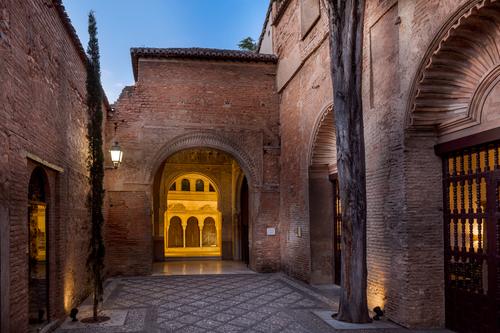
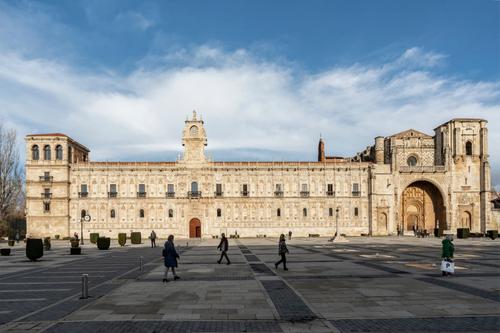
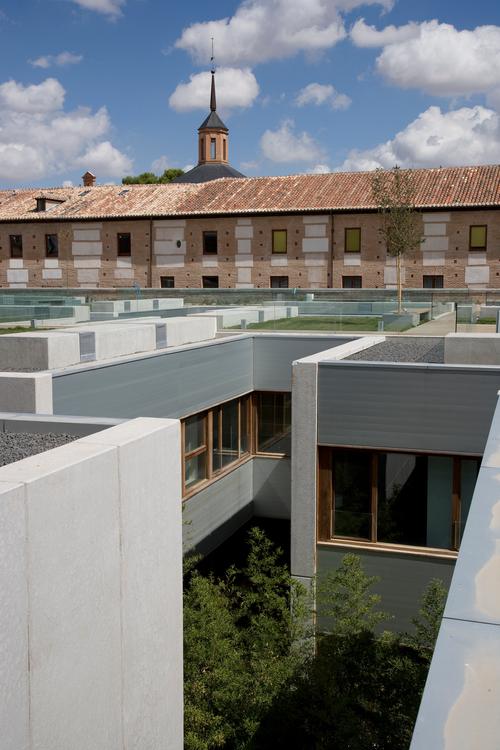
THE PARADORES STORY
Heritage
Since 1928, Paradores has restored castles, palaces and convents, protecting Spain’s built and cultural history.
Historical conservation
The properties are refurbished with contemporary design that also respects the past.
Approach to sustainability
All the hotels are powered by renewable electricity and quality materials are used instead of disposable plastics.

